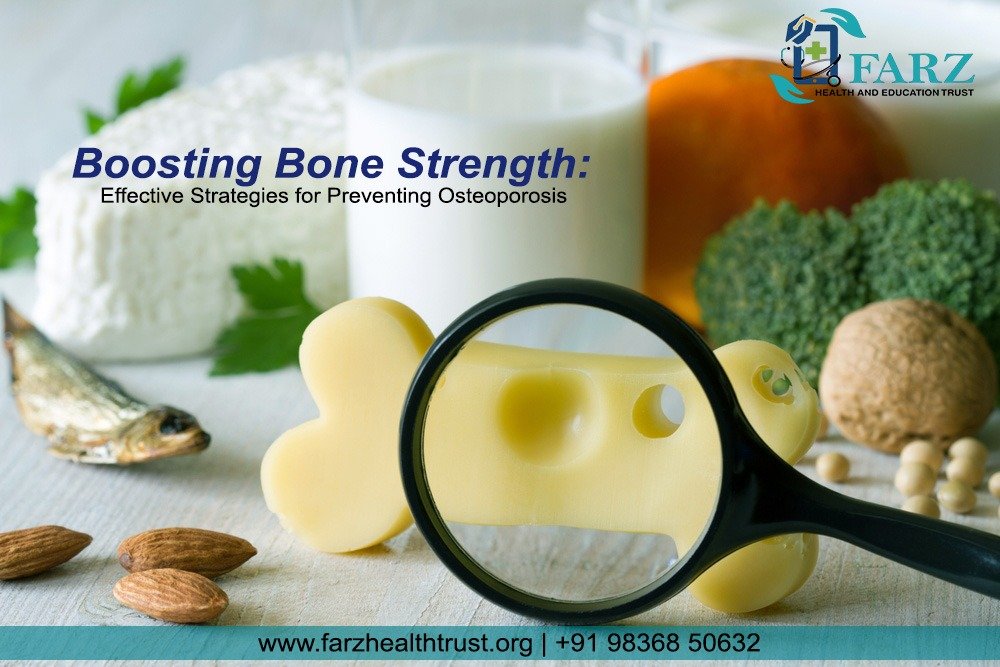
Osteoporosis is a common health concern, especially as we age. It weakens bones, making them fragile and prone to fractures. However, with the right strategies, it is possible to strengthen your bones and reduce the risk of osteoporosis. This blog covers practical tips and lifestyle changes that can help you maintain healthy bones throughout your life.
1. Understanding Osteoporosis
Osteoporosis occurs when bones lose density and strength. The condition mainly affects older adults, particularly women after menopause, though men can develop it too. While some factors like genetics and age are beyond your control, lifestyle changes can play a huge role in prevention.
2. Importance of Calcium and Vitamin D
Calcium and vitamin D are essential for bone health. Calcium supports the structure of bones, while vitamin D helps the body absorb calcium more efficiently. Therefore, it is vital to include both nutrients in your daily diet. Dairy products, leafy greens, and fortified foods are excellent sources of calcium. On the other hand, exposure to sunlight and consuming foods like fatty fish can provide vitamin D. Consider supplements if you cannot get enough from food alone, but always consult a healthcare professional first.
3. Engage in Regular Exercise
Exercise is another key to maintaining strong bones. Weight-bearing exercises, such as walking, jogging, and climbing stairs, are particularly effective. These activities force the body to work against gravity, which helps to strengthen bones over time. Additionally, strength training, like lifting weights or resistance bands, boosts muscle strength and improves bone density. Aim for at least 30 minutes of weight-bearing exercises several times a week to keep your bones in top shape.
4. Focus on Balance and Coordination
Maintaining good balance can help prevent falls, which is important for avoiding fractures in those with weaker bones. Exercises that enhance balance, such as yoga and tai chi, are particularly helpful. These practices not only improve coordination but also increase flexibility and muscle tone. Over time, your risk of falls will decrease, and bone strength may improve.
Learn more about Steps to a Speedy Recovery After Illness
5. Avoid Smoking and Limit Alcohol
Smoking and excessive alcohol consumption have been linked to bone loss. Cigarettes contain toxins that interfere with the body’s ability to absorb calcium. Similarly, drinking too much alcohol can reduce bone formation. If you smoke, quitting can significantly improve bone health. Likewise, limiting alcohol to moderate levels (one drink per day for women and two for men) will support better bone density.
6. Get Enough Protein
Many people overlook the importance of protein for bone health. Protein makes up about 50% of the bone’s structure, so it’s essential for maintaining strength. Good sources of protein include lean meats, eggs, dairy, and plant-based options like beans and lentils. Make sure to incorporate sufficient protein into your diet to support bone growth and repair.
7. Maintain a Healthy Weight
Being either underweight or overweight can negatively impact your bones. Individuals who are underweight may have less bone density, while those who are overweight place extra stress on their bones. Aim for a balanced diet that includes all major food groups, and engage in regular physical activity to maintain a healthy weight. This will help protect your bones and reduce the risk of osteoporosis.
8. Limit Caffeine and Salt Intake
While small amounts of caffeine and salt are generally safe, excessive consumption can weaken bones. Caffeine can reduce the amount of calcium the body absorbs, while too much salt can increase calcium loss through urine. To prevent this, limit your intake of caffeine by reducing coffee and tea consumption, and monitor your salt levels by avoiding processed foods. Simple dietary adjustments can contribute to stronger bones.
9. Monitor Bone Density
As we age, regular check-ups become crucial in detecting early signs of osteoporosis. A bone density test, also known as a DEXA scan, can assess the strength of your bones. These scans are non-invasive and painless. They provide valuable information about your bone health, allowing healthcare providers to recommend personalized preventive measures or treatments. If you’re over 50 or have a family history of osteoporosis, it’s wise to discuss this test with your doctor.
10. Supplement Wisely
While a balanced diet should provide most of the nutrients needed for strong bones, some individuals may require supplements. Calcium and vitamin D supplements are often recommended, especially for older adults. Additionally, magnesium and vitamin K play supporting roles in bone health. However, supplements should be used with caution, as excessive intake of certain vitamins can cause harm. Always consult with a healthcare professional before adding supplements to your routine.
Conclusion
Preventing osteoporosis and boosting bone strength requires a combination of good nutrition, regular exercise, and lifestyle adjustments. By incorporating these strategies into your daily routine, you can reduce the risk of fractures and enjoy a healthier, more active life. Remember to monitor your bone health regularly and make proactive changes to protect your bones for the long term.
Strengthening your bones is an investment in your future. Through small, consistent changes, you can significantly improve your bone health and overall well-being.
